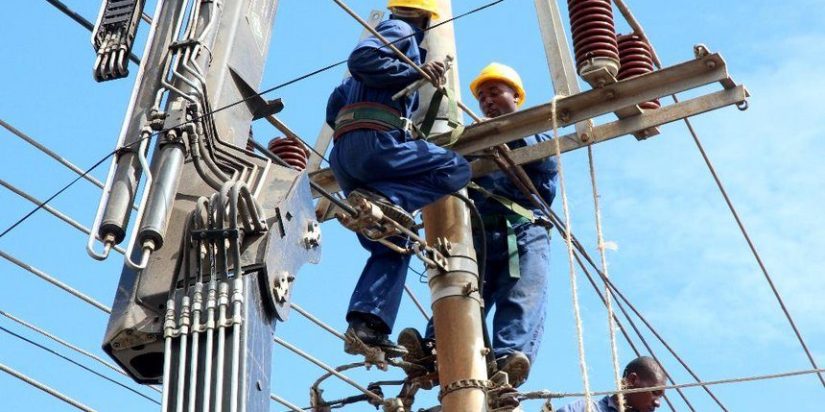
Happy Tuesday! Alex Clavel, the top boss at SoftBank Vision Fund, spoke to ETtech in an exclusive interview. This and other updates in today’s ETtech Morning Dispatch. Also in the letter: ■ Inside Zepto’s funding plans ■ PhonePe, Groww FY24 report ■ AI startup Neysa raises $30 million ETtech Exclusive: India is the world’s most successful IPO market of 2024: SoftBank Vision Fund’s Alex Clavel Alex Clavel, co-CEO, SoftBank Investment Advisers Alex Clavel, co-CEO of SoftBank Investment Advisers, which manages its Vision Funds, in an exclusive chat with ETtech’s Samidha Sharma , termed India as SoftBank’s top-performing market in 2024 on the back of a number of its firms like Firstcry, Ola Electric, Unicommerce going public, and the upcoming $1.
25 billion Swiggy public issue. India’s IPO boom: “In the early days, there was some concern about the thin capital markets here..
While we were excited about the opportunities, we questioned whether the IPO market would be large enough to provide liquidity for our exits. Fortunately, the capital markets in India have developed well, as progressive market regulations have stimulated capital flows and increased domestic liquidity, reducing our dependence on foreign markets like Hong Kong or the US.” US outlook: “The US market has been affected by election-related jitters, heightened interest rates, and geopolitical uncertainties.
After the excitement of 2021, there’s often a cooling-off period, and that’s what we’re seeing now.” India exits: SoftBank bagged $7.5 billion in cash returns from Flipkart's Walmart sale and public market exits in Paytm , Policybazaar , and Blinkit, erstwhile Grofers.
Clavel said these exits in India were not due to any pressure to bring in liquidity because of the stress on the Vision Fund, which had been clocking huge losses due to failed bets on high-flying startups like WeWork. Also Read | Fair pricing, macros aiding listing pop for new-age tech IPOs: SoftBank’s Sumer Juneja The reset: Having been at SoftBank for nearly a decade, Clavel said a lot has changed at the Masayoshi Son-founded firm. “In 2016 and 2017, when the Vision Fund was being conceptualised, we were writing large cheques.
Today, we cut smaller cheques, and have a flexible mandate,” he told ET. Also Read | SoftBank CEO Masayoshi Son talks up artificial super intelligence ambitions India, Nvidia in talks to jointly develop AI chip Jensen Huang, Nvidia CEO with prime minister Narendra Modi Nvidia has proposed developing a chip jointly with India as the company seeks to leverage India’s strong semiconductor design talent and tap this growing market, sources told us. India play: Jensen Huang, Nvidia CEO, made the proposal to prime minister Narendra Modi in the US earlier this year.
Union minister Ashwini Vaishnaw confirmed the same to ET. “Yes, we are discussing with Nvidia the development of an AI chip; discussions are at a preliminary stage,” he said. Huang is visiting India later this week on his annual trip to the country.
Details: The government is hashing out details such as costing, benefits and use cases of such a chip. According to senior government officials, Nvidia's partners, such as Arm or AMD, will design the core architecture of the co-developed chip, while the government-owned Centre for Development of Advanced Computing (C-DAC) or Indian private companies will customise the top layer. Use cases: The co-developed chip could be customised for Indian use cases, for instance, the Indian Railways’ security system, Kavach, one of the officials told us.
Indian startups, companies, and the government can also use the chip to support various apps that may emerge if the government makes it available under the AI mission, they added. Talent: Nvidia wants to use India’s huge chip designing base and develop an India-specific chip. According to a recent Boston Consulting Group (BCG) study, 19% of the world’s chip designers are based in India.
Most of them are employed by the back-office arms of the world’s top chip designing firms. Also Read | India needs a system-to-chips-to-fab virtuous cycle: Ajai Chowdhry Ranjan Pai, Cipla family eye stake in Zepto; startup moves NCLT to shift domicile Aadit Palicha (left) and Kaivalya Vohra, cofounders, Zepto Family offices of Manipal group chief Ranjan Pai, Mankind Pharma brothers Ramesh Juneja and Rajeev Juneja, and Cipla are likely to join quick commerce firm Zepto’s funding round , sources told us. Driving the news: With its latest fundraise from local family offices and high net worth individuals (HNIs) for up to $150 million.
Zepto is looking to shore up domestic shareholding with “well-known and credible” names. We first reported the development on October 17 . Zepto wants to essentially become an Indian majority-owned firm in the next 12-18 months The company’s latest fundraise, expected to be closed by the end of October, has garnered interest from multiple well-known family offices with ecommerce expertise But, why: Most of Zepto’s shareholders are foreign.
Quick commerce platforms have said they operate under the marketplace model but are increasingly favouring the inventory model. The conflict is that India’s foreign direct investment (FDI) rules don’t allow foreign-funded online marketplaces to own inventory or control sellers on their platforms. People in the know said family offices and HNIs will bring more confidence to mutual fund investors for the pre-IPO funding, and a large Indian shareholding is more favourable in key government circles.
Also Read | Zomato’s QIP salvo before Swiggy IPO will further fuel quick commerce frenzy Homecoming: Additionally, Zepto parent Kiranakart has started the process of moving its holding company to India from Singapore, joining multiple Indian companies , including Groww and Razorpay . Zepto is working with Deloitte on the migration, and it should be finalised within six months, sources said. ET has been reporting about the tax outgo for Indian startups who are looking to move domicile here.
Groww closed its India migration on Monday, saying it paid Rs 1,340 crore in tax for the flip. Other Top Stories By Our Reporters Sameer Nigam, CEO, PhonePe PhonePe FY24 operating revenue up 74% to Rs 5,064 crore, loss down 29%: Walmart-backed PhonePe narrowed its net loss by 29% in the last financial year to Rs 1,996 crore from Rs 2,795 crore in FY23. The improved financial performance was backed by a 74% growth in operating revenue to Rs 5,064 crore in FY24, from Rs 2,914 crore a year before, according to the company’s latest annual report.
Groww pays Rs 1,340 crore tax bill for domicile shift, leads to Rs 805 crore of losses: Stock broking platform Groww paid Rs 1,340 crore ($160 million) in taxes as it flipped its parent entity from the US to India in May this year. The tax payout resulted in Groww clocking a net loss of Rs 805 crore for the financial year ending March 31, 2024. At an operational level, the fintech reported a profit of Rs 535 crore, up from Rs 458 crore in FY23.
AI startup Neysa raises $30 million: Neysa, a Mumbai-based artificial intelligence (AI) cloud and platform-as-a-service (PaaS) startup, has raised $30 million (about Rs 252 crore) in a funding round co-led by existing investors – US-based venture capital firm NTTVC, Z47 (formerly Matrix Partners India), and Nexus Venture Partners. Global Picks We Are Reading ■ A Trump win could unleash dangerous AI ( Wired ) ■ Chinese AI groups get creative to drive down cost of models ( FT ) ■ DataCrunch wants to be Europe’s first AI cloud hyperscaler — powered by renewable energy ( TechCrunch ).














